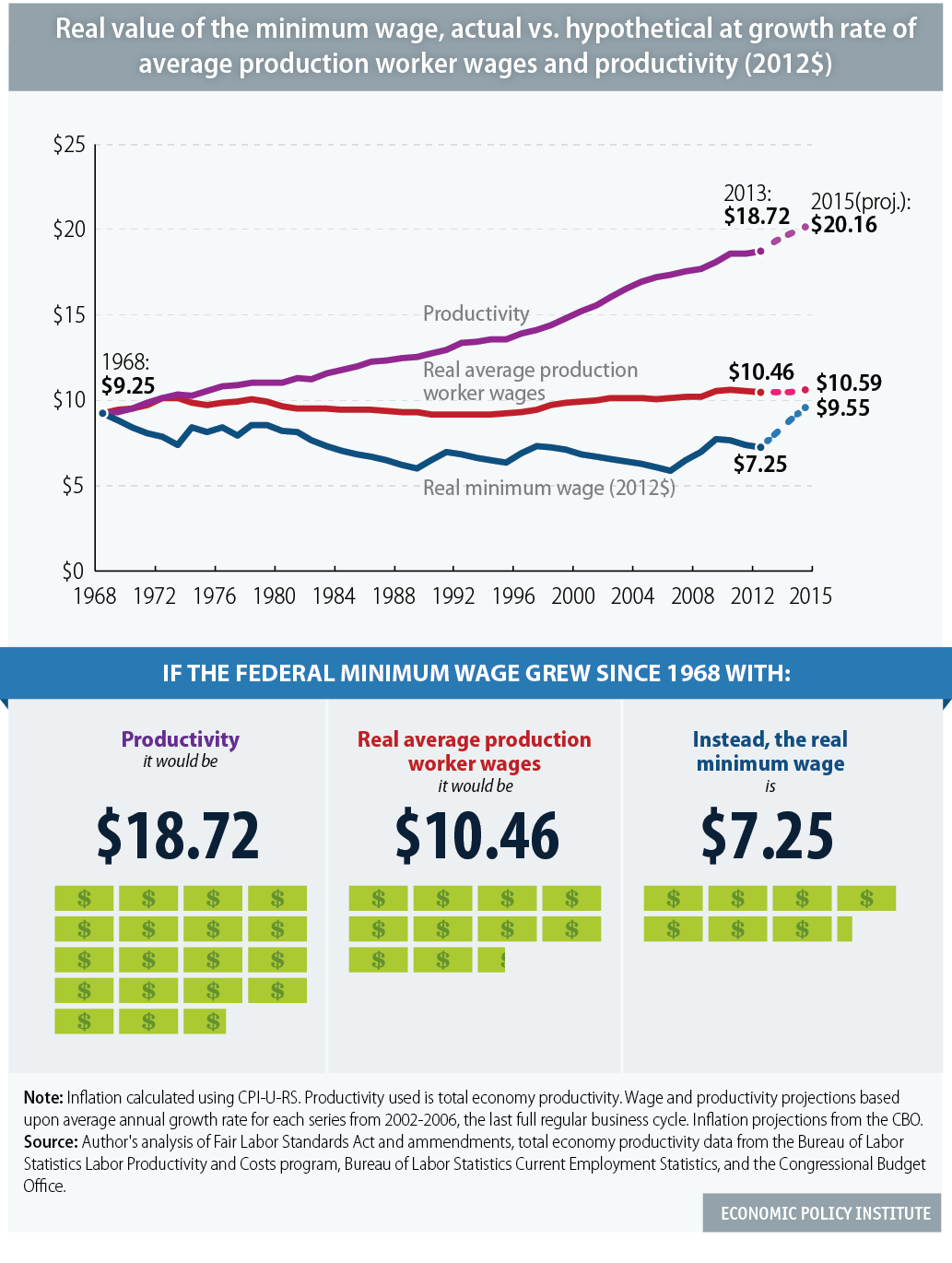Last week, Sen. Tom Harkin (D-Iowa) and Rep. George Miller (D-CA) introduced the Fair Minimum Wage Act of 2013, which would raise the federal minimum wage in three incremental increases to $10.10 per hour by 2015 and then index it to inflation. This would bring the minimum wage, after adjusting for inflation, roughly back in line with its historical high value from the late 1960s.
Yet even after this increase, the minimum wage would still be lower than it could be given the economy’s growth over the past 45 years. Had the minimum wage increased at the same rate as the average American production worker’s wages, it would be about $10.50 today. If it had been raised at the growth rate of productivity—i.e., the economy’s overall capacity to generate income per hour worked—it would be nearly $19 per hour. See our full analysis of the impact of raising the minimum wage in Raising the federal minimum wage to $10.10 would give working families, and the overall economy, a much-needed boost.

